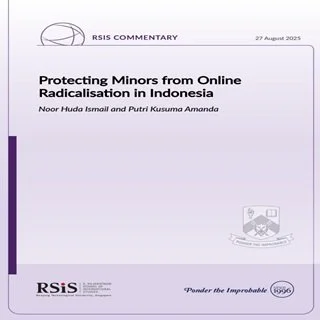By Noor Huda Ismail and Putri Kusuma Amanda
The rise of JAD Nusantara, an ISIS-linked online network drawing in large numbers of minors, exposes serious gaps in Indonesia’s child protection systems. Vulnerable adolescents, often grappling with bullying, isolation, or absent parents, are being recruited without showing clear outward signs of radicalisation. In line with UN child rights standards, Indonesia must adopt an approach that prioritises rehabilitative, child-centred responses, safeguarding children’s rights while tackling the vulnerabilities and special needs that extremists exploit.
COMMENTARY
The case of a 12-year-old boy in Pemalang, Central Java, who joined the terrorist group JAD Nusantara, underscores a worrisome trend: radicalisation is increasingly happening entirely online, beyond parental or authority awareness.
Social media platforms and messaging apps serve as conduits, enabling extremist content to reach vulnerable youth undetected. Research analyses show that extremism thrives on platforms that offer anonymity, rapid dissemination, and emotional appeal – qualities that make virtual spaces ideal for radical recruitment.
Detecting online-driven radicalisation through traditional community surveillance is extremely difficult. Therefore, child protection systems need to adopt digital literacy and monitoring capabilities so that educators and social workers, not just security personnel, can recognize warning signs and intervene early.
A comprehensive society-wide strategy is needed – one that identifies young people at risk and engages them through pastoral, not punitive, channels.
S. Rajaratnam School of International Studies, NTU Singapore, 2025. 6p.






